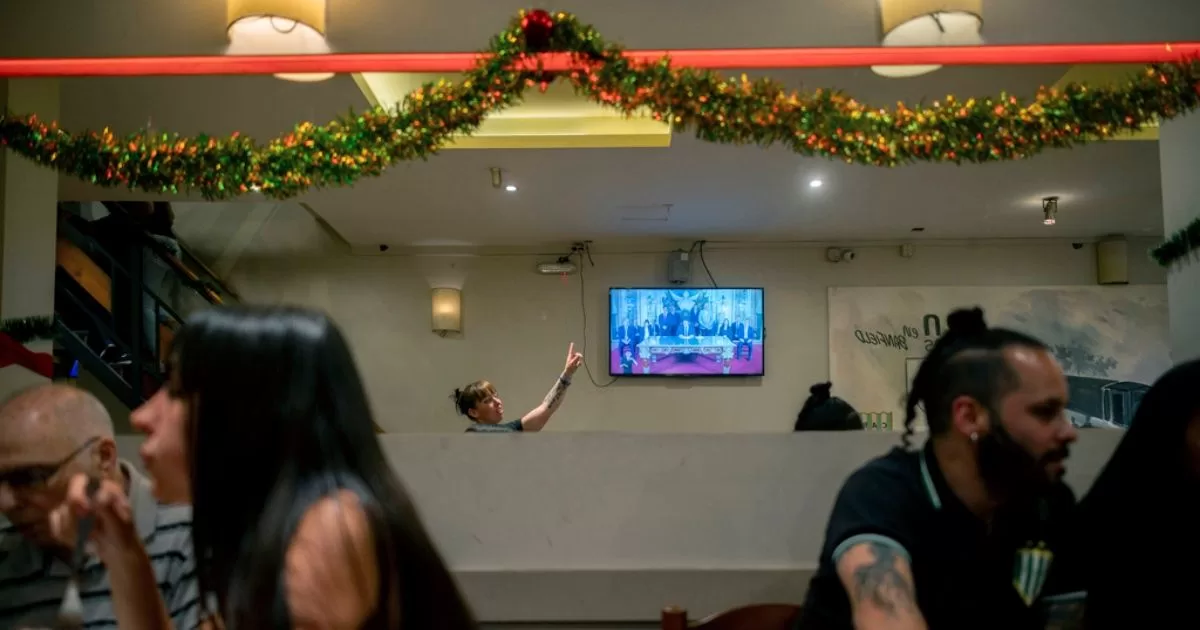Joan Mas Autonell
Kafar Qasem (Israel), April 13. The commotion still runs through the streets of Kafar Qasem, an Arab city in Israel where Yusef Abu Jaber lived. Last Friday he was shot to death by Israeli agents in Tel Aviv after an accident that killed an Italian and injured seven other tourists, in a still unclear event that Israel quickly labeled a “terrorist attack.”
The circumstances of what happened remain to be clarified, but in his city they regret that Abu Jaber -45, father of six daughters, with no criminal record and respected by the neighborhood- was directly labeled a “terrorist” by authorities without There is still no final conclusion of the investigation, something that they attribute to the fact that he was an Arab citizen.
“Israel sees us directly as enemies,” denounced Saed Isa, head of the Kafar Qasem Popular Committee, to EFE.
According to his regrets, Abu Jaber will not be able to tell his version of the events because the police shot him dead when he was lying badly injured when his car overturned, which for him appears to be “an abuse of force”, in what he describes as a “pattern of action common” against the Arabs of Israel, descendants of Palestinians.
ATTACK VERSUS ACCIDENTAL HURT
Until now, his family and residents of the city defend the presumed innocence of Abu Jaber and say that the hit-and-run could have been accidental, demand the publication of the images of the incident and request detailed reports of the autopsy of the corpse and the analysis of his vehicle.
Police initially said they fatally shot him because he tried to pull out a gun. Later she rectified and assured that it was an object similar to a firearm, but she did not provide any evidence of this.
He also did not publish images from the surveillance cameras in the area, and according to the media, he refused to make public the content of the body cameras of the agents who shot due to the current investigations, which has raised suspicions in Kafar Qasem.
The alleged attacker was not involved in politics, was a beloved employee at an Israeli school, and had Jewish friends. For this reason, his environment reacted incredulously when he found out about the case.
Several residents assured EFE that they see it as “impossible” for him to commit an attack, allege that he could have slept or had a technical failure in the car, while the Israeli Police and Intelligence service maintain the “terrorist attack” as the main hypothesis in their investigation.
DEADLY INCIDENT
According to the Hebrew media, the tests ruled out that he could have a stroke, and it is still unknown if he suffered from another medical condition or was under the influence of drugs or alcohol when he committed the alleged attack.
The attack ended the life of Alessandro Parini -a 35-year-old Italian who was visiting Israel and is now buried in Rome- and left seven injured, all tourists from Italy and the United Kingdom who were walking along the Tel Aviv seafront in full weekend.
The sequence of events – including initial reports of a gun attack that was later denied – put all of Tel Aviv on alert, as it has suffered several fatal shootings by Palestinians in the past year.
Everything occurs in the midst of another rise in tension between Israel and Palestine that at the beginning of 2023 escalated into the most violent situation since the Second Intifada. So far this year, 98 Palestinians have been killed in the conflict; while on the Israeli side 19 people have died.
HISTORICAL DISCRIMINATION
However, after years of denunciations of criminalization against the Arabs, in Kafar Qasem they do not trust Israel. In various parts of the city there are memorials of the events of 1956, when Israeli forces killed almost 50 of its inhabitants after decreeing an abrupt curfew.
At that time the Arab-Israeli population was subject to military law – which lasted until 1966 – and in 2007 the late Israeli President Shimon Peres apologized for the massacre on behalf of the state.
The Arab sector – descendant of those who remained in present-day Israel after its creation in 1948 and which today is 20% of the population – denounces suffering historical discrimination and second-class treatment.
It is about “racism” which, according to Saed Isa, was seen again in the forceful way in which the Israeli Police killed Abu Jaber.
“Why are they shooting him in the head? Why are they killing him? We want the truth,” another neighbor told EFE, referring to a video broadcast on social networks where agents are seen firing an intense burst of bullets at Abu Jaber while on the ground. EFE
jma/sga/jac
(photo) (video)


